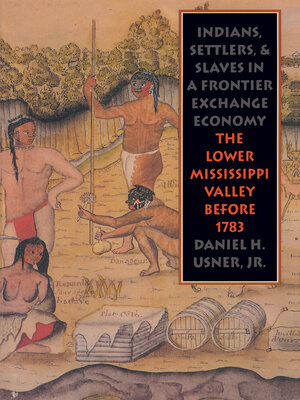Indians, Settlers, and Slaves in a Frontier Exchange Economy
ebook ∣ The Lower Mississippi Valley Before 1783 · Omohundro Institute of Early American History and Culture and the University of North Carolina Press
By Daniel H. Usner Jr.

Sign up to save your library
With an OverDrive account, you can save your favorite libraries for at-a-glance information about availability. Find out more about OverDrive accounts.
Find this title in Libby, the library reading app by OverDrive.



Search for a digital library with this title
Title found at these libraries:
| Library Name | Distance |
|---|---|
| Loading... |
In this pioneering book Daniel Usner examines the economic and cultural interactions among the Indians, Europeans, and African slaves of colonial Louisiana, including the province of West Florida. Rather than focusing on a single cultural group or on a particular economic activity, this study traces the complex social linkages among Indian villages, colonial plantations, hunting camps, military outposts, and port towns across a large region of pre–cotton South.
Usner begins by providing a chronological overview of events from French settlement of the area in 1699 to Spanish acquisition of West Florida after the Revolution. He then shows how early confrontations and transactions shaped the formation of Louisiana into a distinct colonial region with a social system based on mutual needs of subsistence. Usner’s focus on commerce allows him to illuminate the motives in the contest for empire among the French, English, and Spanish, as well as to trace the personal networks of communication and exchange that existed among the territory’s inhabitants. By revealing the economic and social world of early Louisianians, he lays the groundwork for a better understanding of later Southern society.
Usner begins by providing a chronological overview of events from French settlement of the area in 1699 to Spanish acquisition of West Florida after the Revolution. He then shows how early confrontations and transactions shaped the formation of Louisiana into a distinct colonial region with a social system based on mutual needs of subsistence. Usner’s focus on commerce allows him to illuminate the motives in the contest for empire among the French, English, and Spanish, as well as to trace the personal networks of communication and exchange that existed among the territory’s inhabitants. By revealing the economic and social world of early Louisianians, he lays the groundwork for a better understanding of later Southern society.







